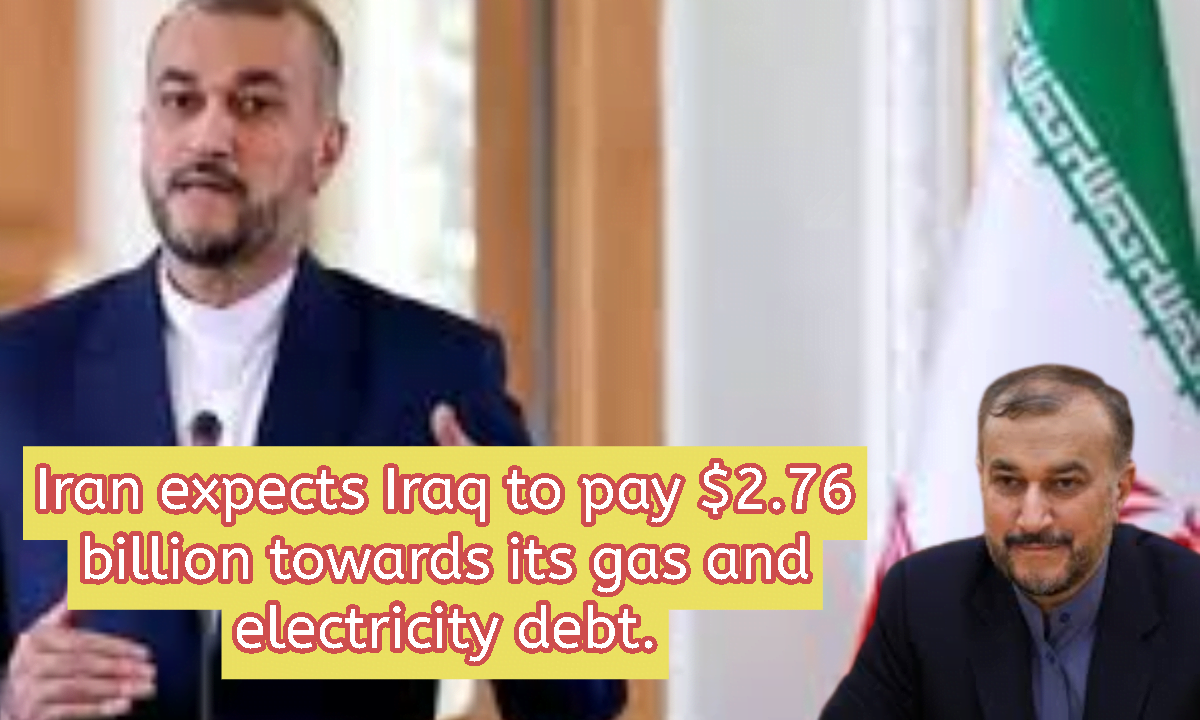Iraq Set to Repay $2.76 Billion Gas and Electricity Debt to Iran Following Sanctions Waiver
Iraq has recently reached an agreement to pay approximately $2.76 billion in gas and electricity debt owed to Iran. According to a senior official from the Iraqi foreign ministry, Iraq was able to make this payment after receiving a sanctions waiver from the United States.
Section 1: Debt Settlement and Sanctions Waiver
The authorization for debt repayment was granted during a meeting between American Secretary of State Antony Blinken and Iraqi Foreign Minister Fuad Hussein at the Riyadh Conference. As per an unnamed source from the foreign ministry who spoke to Reuters, this information is confidential due to media authorization restrictions.
Section 2: Iraq's Dependency on Iranian Imports
As a result of prolonged conflict and sanctions, Iraq relies on gas imports from Iran to meet its energy needs. But, the imposition of U.S. sanctions on Iranian oil and gas has hindered Iraq's ability to make timely payments for these imports. So, Iraq has accumulated significant arrears, prompting Iran to reduce gas supplies in retaliation.
Section 3: Progress in Debt Resolution
Iraqi Foreign Ministry spokesperson Ahmed Al-Sahhaf acknowledged that progress had been made in addressing the financial dues between Iraq and Iran during the discussion between Hussein and his American counterpart in Riyadh. But, no specific details were provided about the nature of the progress.
Section 4: Use of Funds
Yahya Al-e Eshaq, the head of the Iran-Iraq Chamber of Commerce, revealed that a part of Iran's blocked funds in Iraq would be allocated for Hajj pilgrims, while another part would be utilized for essential goods. This statement was reported by Iranian news agencies.
Section 5: Fund Transfer and Purpose
The remove Iraqi foreign ministry source confirmed that the repayment would be processed through the Commercial Bank of Iraq. It was further specified that the funds would be utilized for covering expenses related to Iranian pilgrims and importing foodstuffs into Iran.
Section 6: Iranian Assets and U.S. Sanctions
Due to U.S. sanctions, Iran has encountered challenges in accessing billions of dollars in assets held in various countries. This situation has changed Iran's financial capabilities.
Section 7: Iraq's Struggle for Energy Self-Sufficiency
The United States has urged Iraq, one of OPEC's largest oil producers, to strive for self-sufficiency in energy production as a condition for exempting it from importing Iranian energy. But, Iraq has faced difficulties in achieving this goal.
Conclusion:
Iraq's agreement to repay the $2.76 billion gas and electricity debt to Iran, facilitated by the U.S. sanctions waiver, marks a significant step towards resolving the financial obligations between the two nations. The use of these funds for Iranian pilgrims and essential goods aims to address pressing needs. As Iraq continues its efforts toward energy self-sufficiency. The outcome of this agreement is expected to have far-reaching implications for both countries.

Post a Comment